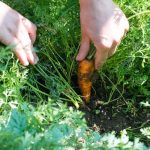Known for its fertile soil and rich agricultural history, Mississippi has a long tradition of vegetable gardening. From the indigenous peoples who first cultivated the land to modern-day gardeners, the state has always embraced the practice of growing fresh produce at home. In this article, we will explore the deep roots and cultural significance of vegetable gardening in Mississippi and provide valuable insights for successful gardening in this unique environment.
Understanding the climate and soil is crucial for successful vegetable gardening in Mississippi. With its warm, humid climate and diverse soil types, the state offers both opportunities and challenges for gardeners. By learning about the specific conditions of Mississippi’s climate and soil, gardeners can make informed decisions about what to plant and how to care for their vegetable gardens.
When it comes to choosing vegetables to grow in Mississippi, certain varieties thrive in the state’s unique climate. From traditional southern crops like okra and tomatoes to heat-tolerant greens such as collards and mustard greens, there is a wide range of delicious options for Mississippi gardeners. We will explore the best vegetables to grow in the state, along with valuable tips for starting and maintaining a successful vegetable garden.
Understanding the Climate and Soil in Mississippi for Successful Vegetable Gardening
Mississippi’s climate and soil play a crucial role in the success of vegetable gardening in the state. Understanding these factors is essential for any gardener looking to cultivate a bountiful harvest. The climate in Mississippi is characterized by hot, humid summers and mild winters, making it suitable for a wide variety of vegetables. Additionally, the state’s diverse soil types, including sandy loam and clay, present both opportunities and challenges for gardeners.
To maximize the potential of Mississippi vegetable gardens, it is important to choose vegetables that are well-suited to the state’s unique climate. Some of the best vegetables to grow in Mississippi include:
- Tomatoes
- Bell peppers
- Okra
- Squash
- Watermelon
These vegetables thrive in the warm temperatures and ample sunlight that Mississippi offers. Additionally, they are resilient enough to withstand the occasional extreme weather conditions that may arise during the growing season.
When starting a vegetable garden in Mississippi, it is important to consider soil preparation. Amending the soil with organic matter such as compost can improve its fertility and drainage, ensuring optimal growing conditions for vegetables. Furthermore, keeping an eye on moisture levels is crucial in Mississippi’s hot climate. Implementing mulching techniques can help retain soil moisture and regulate temperature, benefiting the overall health of your vegetable plants.
Understanding and working with Mississippi’s climate and soil can lead to a successful vegetable garden that provides fresh produce throughout the growing season. By choosing appropriate vegetables and implementing proper soil management techniques, gardeners can overcome environmental challenges and enjoy a flourishing garden full of homegrown produce.
Best Vegetables to Grow in Mississippi’s Unique Climate
Selecting the right vegetables to grow in Mississippi’s unique climate is crucial for a successful vegetable garden. The state’s warm, humid summers and mild winters create a perfect environment for certain types of vegetables to thrive. Here are some of the best vegetables to consider planting in your Mississippi vegetable garden:
- Tomatoes: With the right care and attention, tomatoes can flourish in Mississippi’s climate. Varieties such as cherry tomatoes, beefsteak, and roma tomatoes are well-suited for the state’s growing conditions.
- Peppers: Both sweet and hot peppers, including bell peppers, jalapenos, and banana peppers, can be successfully grown in Mississippi. These versatile vegetables add flavor and color to any garden.
- Okra: A Southern favorite, okra is well-adapted to Mississippi’s hot weather. It thrives in the summer heat and produces an abundant harvest throughout the season.
- Squash: Summer squash varieties like zucchini and yellow squash are ideal for Mississippi gardens. Their fast-growing nature makes them a popular choice for local gardeners.
In addition to these vegetables, other suitable options for Mississippi vegetable gardens include cucumbers, green beans, watermelon, and collard greens. When selecting which vegetables to grow, it’s important to consider not only the climate but also factors such as soil quality and available space in your garden. By choosing vegetables that are well-suited for Mississippi’s unique climate, you can increase your chances of a successful harvest.
Ultimately, by cultivating a variety of vegetables that are compatible with Mississippi’s climate, you can enjoy a bountiful harvest from your vegetable garden while embracing the beauty of this traditional practice in the state. Whether you are an experienced gardener or new to this hobby within Mississippi’s rich history of farming traditions – growing these recommended vegetables will surely result positively with good fortune.
Tips for Starting and Maintaining a Successful Vegetable Garden in Mississippi
Starting and maintaining a successful vegetable garden in Mississippi can be both rewarding and challenging. The key to success lies in understanding the unique climate and soil conditions of the state, as well as selecting the right vegetables to grow. Mississippi has a long growing season, hot and humid summers, and mild winters, which makes it an ideal environment for a wide variety of vegetables.
When starting a vegetable garden in Mississippi, it’s important to choose the right location. Most vegetables require full sun, so select a spot in your yard that receives at least 6-8 hours of sunlight per day. Additionally, make sure the soil is well-draining and rich in organic matter. Conducting a soil test can help you determine its pH level and nutrient content, allowing you to make any necessary amendments before planting.
Once you have prepared your garden bed, carefully select the vegetables you want to grow. Some popular choices for Mississippi vegetable gardens include tomatoes, peppers, squash, okra, cucumbers, sweet potatoes, and various types of beans. These vegetables are well-suited to the state’s climate and soil conditions and have a high likelihood of thriving when properly cared for.
To maintain a successful vegetable garden in Mississippi, regular watering is essential, especially during the hot summer months. Mulching can help retain soil moisture and regulate temperature. Additionally, practicing crop rotation can help prevent disease buildup and improve overall soil health. By taking these steps and staying vigilant against common pests and diseases that affect mississippi vegetable gardens, you can enjoy a bountiful harvest throughout the growing season.
| Vegetable | Best Planting Time |
|---|---|
| Tomatoes | March – April |
| Peppers | April – May |
| Squash | April – June |
| Okra | Late April – May |
Overcoming Common Challenges for Vegetable Gardening in Mississippi
When it comes to vegetable gardening in Mississippi, there are a few common challenges that gardeners often face. From extreme weather conditions to pesky pests, these challenges can sometimes make it difficult to maintain a successful vegetable garden. However, with the right knowledge and strategies, it is possible to overcome these obstacles and have a thriving garden.
Extreme Heat and Humidity
One of the biggest challenges for vegetable gardening in Mississippi is the often extreme heat and humidity. These conditions can be tough on plants, causing them to wilt and struggle if not properly cared for. To combat the effects of the heat and humidity, it’s important to choose heat-tolerant varieties of vegetables such as okra, sweet potatoes, and peppers. Additionally, providing plenty of water and shade for your plants can help them withstand the intense Mississippi summer.
Pest Management
In Mississippi vegetable gardens, pests can be a major issue. Common pests such as aphids, caterpillars, and squash bugs can wreak havoc on your plants if not properly managed. One effective strategy for pest management is to encourage beneficial insects such as ladybugs and lacewings that will prey on the harmful pests. Additionally, using natural deterrents like neem oil or diatomaceous earth can help keep pests at bay without resorting to harsh chemicals.
Soil Quality
Another challenge for vegetable gardening in Mississippi is the quality of the soil. Many areas of Mississippi have clay-heavy soil that can be difficult for plants to grow in. To improve soil quality, consider adding organic matter such as compost or aged manure to your garden beds. This will help improve soil structure and fertility, creating an optimal environment for your vegetables to thrive.
By understanding these common challenges and implementing effective strategies for overcoming them, gardeners in Mississippi can enjoy successful vegetable gardens that yield bountiful harvests despite the obstacles they may face. Through perseverance and dedication, it is possible to cultivate beautiful and productive vegetable gardens in the state of Mississippi.
Success Stories From Mississippi Vegetable Gardens
Mississippi is home to countless success stories from vegetable gardens that have flourished in its unique climate and soil. These success stories not only showcase the potential for abundant harvests but also highlight the creativity, dedication, and hard work of local gardeners.
Perseverance Pays Off
In many parts of Mississippi, vegetable gardening can be a challenging endeavor due to the hot and humid climate, as well as specific soil conditions. Despite these challenges, many gardeners have persevered and created thriving vegetable gardens. Through careful planning, diligent maintenance, and a deep understanding of their local environment, these individuals have managed to grow a wide variety of vegetables successfully.
Adapting and Innovating
One of the key factors contributing to the success of Mississippi vegetable gardens is the willingness of gardeners to adapt and innovate. By utilizing techniques such as raised bed gardening, companion planting, and organic pest control methods, Mississippi gardeners have been able to overcome common challenges and achieve impressive results. Some have even experimented with heirloom varieties and non-traditional crops with great success.
Community Impact
Beyond individual successes, Mississippi vegetable gardens have also made a significant impact on local communities. Many gardeners generously share their harvests with neighbors in need or donate excess produce to food banks and shelters. These acts of generosity not only provide nutritious food to those in need but also foster a sense of community spirit and cooperation among residents.
These success stories serve as an inspiration for both experienced and novice gardeners in Mississippi, demonstrating that with determination, innovation, and community support, bountiful vegetable gardens can thrive in the Magnolia State.
Community Resources and Support for Vegetable Gardeners in Mississippi
The state of Mississippi is rich in resources and support for individuals looking to start or maintain a vegetable garden. Whether you are a seasoned gardener or just starting out, there are plenty of community resources available to assist you in your gardening endeavors.
One of the most valuable resources for Mississippi vegetable gardens is the Mississippi State University Extension Service. This organization provides a wealth of information on everything from soil testing to pest control, and offers workshops and classes for gardeners of all skill levels.
In addition to the Extension Service, many local communities in Mississippi have established gardening clubs and organizations that offer support and camaraderie for vegetable gardeners. These groups often host events, swap plants and seeds, and provide opportunities for networking with other like-minded individuals who share a passion for gardening. By joining these community organizations, gardeners can tap into a wealth of knowledge and experience that can help them overcome common challenges and achieve success in their own vegetable gardens.
Furthermore, many local nurseries and garden centers also play an important role in supporting vegetable gardeners in Mississippi. These businesses often host educational events, sell locally-adapted seeds and plants, and provide expert advice on growing vegetables in the unique climate and soil conditions of the state. By taking advantage of these community resources, Mississippi vegetable gardeners can increase their chances of having bountiful harvests while also cultivating a sense of camaraderie with fellow gardening enthusiasts.
The Economic and Environmental Benefits of Vegetable Gardening in Mississippi
Vegetable gardening in Mississippi not only provides a fresh and healthy food source for individuals and families, but it also offers numerous economic and environmental benefits. One of the primary economic advantages of vegetable gardening is the cost savings associated with growing your own produce.
By cultivating a variety of vegetables at home, Mississippi residents can reduce their grocery bills and have access to high-quality, organic food without the premium price tag. Additionally, surplus produce can be sold at local farmers’ markets or directly to neighbors, providing an opportunity for supplemental income.
From an environmental standpoint, vegetable gardening in Mississippi promotes sustainability and reduces the carbon footprint associated with commercial agriculture and food transportation. By growing vegetables locally, gardeners can decrease the need for long-distance shipping and refrigeration, which lowers greenhouse gas emissions. Furthermore, practicing organic gardening methods such as composting, mulching, and natural pest control contributes to healthier soil and ecosystems in the region.
The economic impact of vegetable gardening extends beyond individual households. In fact, community gardens and small-scale farming operations play a vital role in boosting local economies by creating jobs, supporting small businesses that sell gardening supplies or equipment, and attracting tourism through agritourism initiatives. Ultimately, embracing vegetable gardening in Mississippi has the potential to strengthen communities and enhance the overall well-being of both people and the environment.
| Economic Benefits | Environmental Benefits |
|---|---|
| Cost savings on groceries | Promotes sustainability |
| Opportunity for supplemental income | Reduces carbon footprint |
| Supports local businesses | Improves soil health |
Conclusion
In conclusion, Mississippi’s vegetable gardening tradition is deeply rooted in its rich history and agricultural heritage. The state’s unique climate and soil provide an ideal environment for cultivating a wide variety of vegetables, making it possible for gardeners to enjoy a bountiful harvest year after year. With the right knowledge and resources, individuals can successfully grow an array of vegetables that thrive in Mississippi’s conditions.
Despite the challenges that come with vegetable gardening in Mississippi, such as high temperatures and humidity, dedicated gardeners have found ways to overcome these obstacles and achieve remarkable success. By following best practices for starting and maintaining a garden, as well as seeking support from community resources, both novice and experienced gardeners can create thriving vegetable gardens that yield delicious produce.
Ultimately, embracing the beauty and bounty of Mississippi vegetable gardens not only contributes to the economic well-being of individuals and communities but also provides environmental benefits by promoting sustainable agriculture practices. As more people recognize the value of vegetable gardening in Mississippi, the tradition continues to flourish, resulting in increased access to fresh, locally grown produce.
Through dedication, perseverance, and a love for gardening, individuals can truly appreciate the abundance that comes from cultivating their own patch of greenery in this fertile southern state.
Frequently Asked Questions
What Vegetables Can You Grow in Mississippi?
In Mississippi, you can grow a variety of vegetables including tomatoes, okra, sweet potatoes, squash, bell peppers, cucumbers, and collard greens. The warm climate and fertile soil make it ideal for growing these crops.
When Should You Plant a Garden in Mississippi?
The best time to plant a garden in Mississippi is typically in the early spring around March or April. This allows the vegetables to take advantage of the warmer weather and longer days to grow and mature before the intense summer heat arrives.
What Food Can You Grow in Mississippi?
Mississippi’s climate and soil are well-suited for growing a wide range of foods. In addition to vegetables, fruits like blueberries, peaches, and strawberries thrive in the state. Furthermore, crops such as soybeans, cotton, rice, and corn are also commonly grown due to the agricultural landscape of Mississippi.

If you’re looking to get into vegetable gardening, or are just looking for some tips on how to make your current garden better, then you’ve come to the right place! My name is Ethel and I have been gardening for years. In this blog, I’m going to share with you some of my best tips on how to create a successful vegetable garden.





